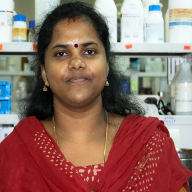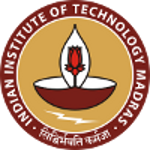Endothelial cells group
Blood vessels are composed of intima, media and adventitia. The inner most layer 'intima' consists of endothelial cells, which are in direct contact with circulating blood. These cells respond to varying haemodynamic and biochemical changes in the circulatory system by producing autocoids such as nitric oxide. The endothelium derived NO is a vasodilator and is anti-thrombotic and anti-inflammatory. Hence, endothelium plays an essential role in regulating vessel tone, vascular inflammation and blood pressure. Unfortunately, aberrant functioning of the endothelium, also termed as Endothelial Dysfunction, is the root cause for initiation of cardiovascular complications. It involves decreased NO and increased oxidative stress. However, the molecular events triggering these anomalies are presently unknown.
The primary objective of this project is to understand molecular pathways initiating endothelial dysfunction in diabetic settings, given that diabetic patients have greater risk of developing cardiovascular disorders be it heart attack, stroke, retinopathy or peripheral vascular disease. We isolate and culture endothelial cells derived from umbilical cords (HUVECs) in presence of diabetic conditions such as hyperglycemia and lipotoxicity prior to determining signaling changes via molecular and cellular biology approaches. At present, the major focus is to understand the involvement of protein tyrosine phosphatases in regulation of eNOS (the major form of nitric oxide synthase in endothelial cells) and other signaling intermediates. Team members involved in these projects are:

Dr. Monalisa Dhar

K Rathnakumar

Hemant Giri

Anuradha Sathish

T Avaneesh

Sumedha Pareek

Govind Krishna Joshi


Dr. Dhar received her M. Phil in 1998 and doctorate from University of Madras in 2004. She moved to Madras diabetes Research Foundation for a postdoctoral Fellow in the Department of Molecular Genetics and subsequently worked as a Research Associate in the Department of Research Biochemistry. From Jan2010 she is attached to Dept. of Biotechnology, IITM as Research Associate.
Her expertise lies in the fields of endothelial function both in health and disease. VEGF, Angiopoietin and Ephrin are key molecules in the promotion of angiogenesis, of which Angiopoietin/Tie2 pathway acts to promote the recruitment of supporting cells and vessel stabilization. Little is known about the biological function and its actual functional implications in normal and diseased conditions. Thus she is currently studying the role of Angiopoietin-2 in vascular development and its regulative mechanism in the endothelial cell function using in vitro HUVEC based primary cell culture model.


Gab1 (GRB2-associated binder 1) belongs to the Insulin Receptor Substrate-1 like family of adaptor molecules and is activated in response to insulin and number of growth factors like EGF, HGF, NGF, PDGF including cytokines IL 3 and IL 6. Although lacking selectivity, Gab1 critically control specificity of the extracellular stimuli by recruiting key signaling partners like tyrosine phosphatase SHP2 and P85 subunit of PI3K and also by targeting to intracellular localization. Despite their abundance in endothelium, their function is not completely understood. My project aims to explore the hitherto relatively unexplored mechanism regulated by endothelial Gab1 protein in physiological and pathophysiological mechanism using Primary endothelia cells from Umbilical cord as cell culture model.


I finished my MSc form Barkatullah University and Mtech biotechnology form Rajiv Gandhi Proudyogiki Vishwavidyalaya, Bhopal. I worked on “micropropagation and genetic diversity of Garcinia indica” in National Chemical Laboratory, Pune. In ACTRC, bombay i worked on cjun: TAD domain and its structural properties. I joined IIT Madras on 18th july 2008 and my project is "phosphatases in hyperinsulinemia mediated endothelial inflammation".
The molecular mechanisms in regulation of pro- and anti-inflammatory molecules by insulin signalling remain controversial. Phosphatases are generally known to inactivate the signaling pathway. But in EGF and insulin signaling, PTP1D phosphatase is known to be a positive effector. PTP1D phophatase activity is essential for the downstream signalling of cytokines and growth factors. I am interested to find the role of this unique phophatase in the pathological settings of type II diabetes.


Anu did here masters in Biochemistry from University of Madras in 2000. She worked has Senior Research Assistant in Madras Diabetes Research Foundation (MDRF), Gopalapuram, Chennai. She registered for her doctorate in December, 2007 at University of Madras under the guidance of Dr.V.Mohan. Her research topic is “Role of Angiopoietin-2 on Diabetes Vasculopathy’’.
Angiogenesis, the formation of new blood vessels from pre-existing blood vessels, is a normal physiological process in growth and development which is regulated by the angiopoietins. Ang1 and Ang2, protein growth factors which induce a signaling pathway upon binding their receptors, Tie1 and Tie2, the endothelial-specific receptor kinases. Ang-2, a context-dependent agonist/antagonist for the vascular-specific Tie2 receptor, is highly expressed by endothelial cells at sites of normal and pathologic angiogenesis. Subjects with diabetes are at high risk of developing micro- and macro vascular complications that are likely to mark different, but related, aspects of endothelial damage. Increased blood glucose in diabetes can exert toxic effects on the endothelium through a number of mechanisms. The accelerated formation and accumulation of glycation products associated with raised blood glucose may up-regulate both Ang-2 transcription and production.
We aimed to further explore the factors that might influence or predict circulating Ang-2 levels in diabetic subjects. A detailed structural and functional analysis of the Ang2 promoter is required to understand the transcriptional regulation of Ang2.









